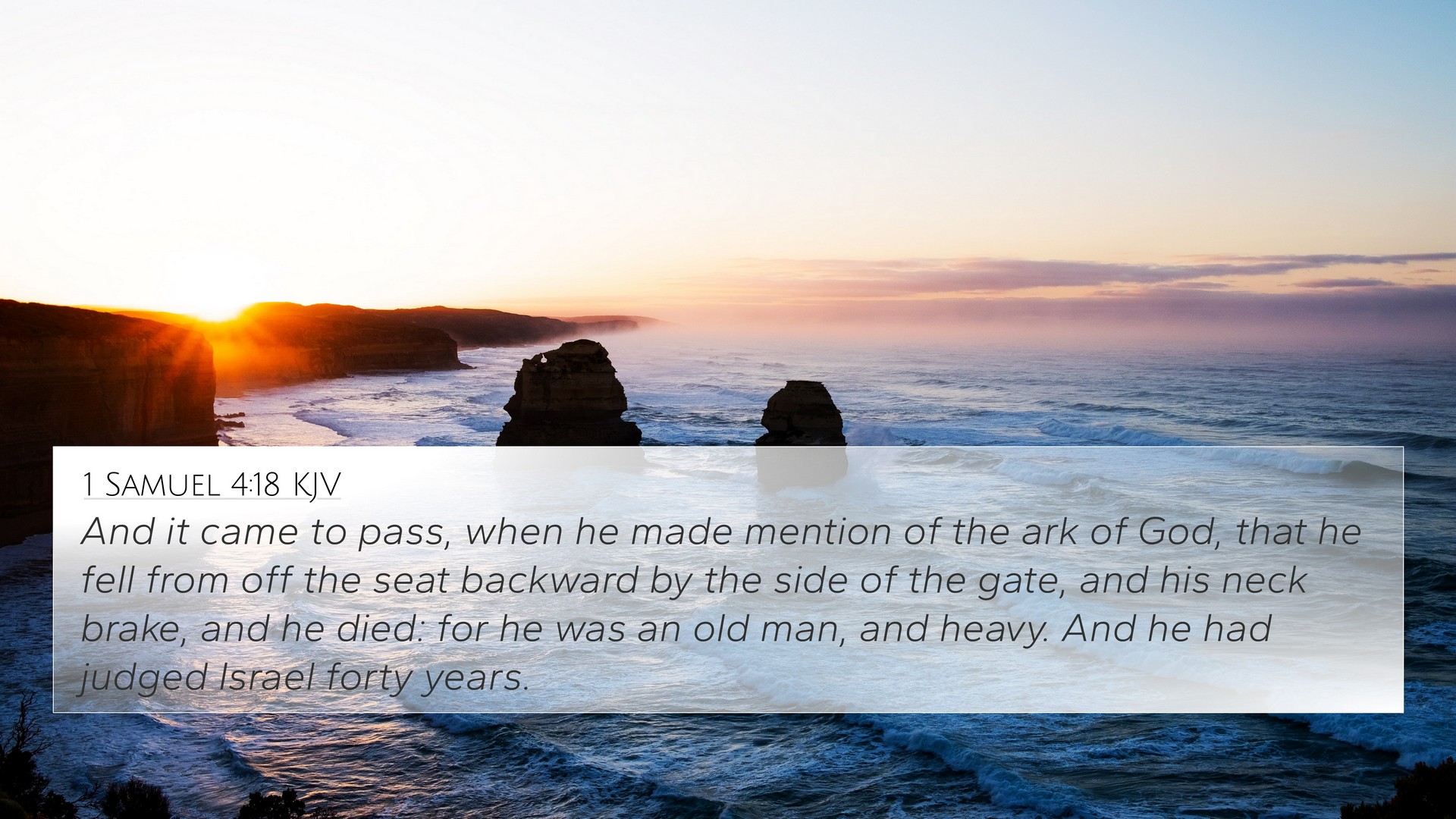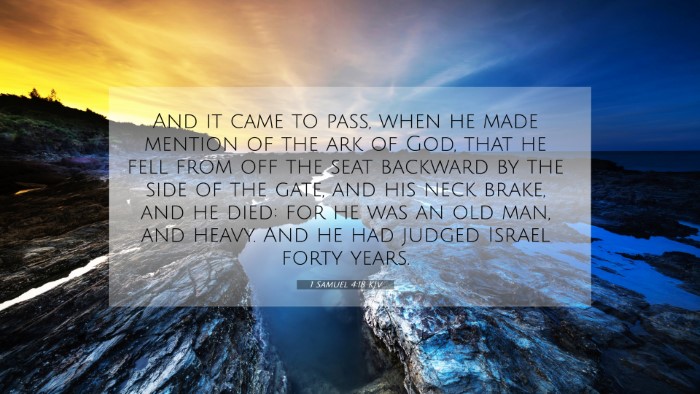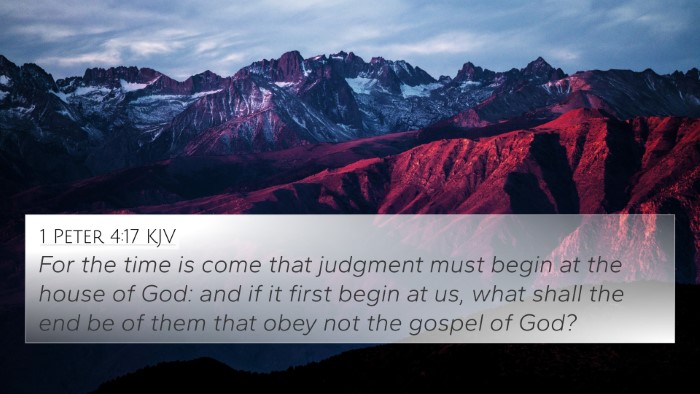Understanding 1 Samuel 4:18
1 Samuel 4:18 reads: "And it came to pass, when he made mention of the ark of God, that he fell from off the seat backward by the side of the gate, and his neck brake, and he died: for he was an old man, and heavy. And he had judged Israel forty years."
This verse reveals profound themes of loss, judgment, and the significance of God's presence symbolized by the Ark. The interpretation of this verse requires context, reflecting both historical events and theological implications.
Commentary Insights
-
Matthew Henry's Commentary:
Henry emphasizes the tragic end of Eli, illustrating the consequences of his neglect in spiritual oversight. He identifies that the mention of the Ark triggered Eli’s fatal reaction, highlighting the Ark's role as a divine presence in Israel and the weight of disappointment it carried after the Israelite's defeat.
-
Albert Barnes' Notes:
Barnes notes that Eli's heavy nature symbolizes his moral weight, suggesting he was burdened with the weight of his failures as a leader. The falling backward from his chair symbolizes a fall from grace, indicative of the larger collapse in the Israelite's spiritual condition during this time.
-
Adam Clarke's Commentary:
Clarke places significance on Eli’s age and heaviness, interpreting it as a metaphor for spiritual lethargy. He suggests that the news of the Ark’s capture symbolizes divine judgment upon Israel, underlining that the loss of the Ark marked a pivotal moment in Israelite history.
Thematic Connections
The events surrounding 1 Samuel 4:18 connect to various overarching themes within scripture:
- The Judgment of Leaders: Eli’s demise showcases the repercussions of failing to lead God’s people effectively.
- The Presence of God: The Ark of the Covenant represented God's presence, and its loss signifies a troubling distance between Israel and God.
- Spiritual Decline: Eli’s fall denotes both a physical and spiritual collapse, mirroring Israel’s decline in faith and obedience.
Bible Verse Cross-References
Several verses connect thematically and contextually with 1 Samuel 4:18:
- 1 Samuel 2:34: Prophecy concerning Eli's household and judgment for their iniquity.
- 1 Samuel 3:13: God's warning about Eli's family's sin and the consequences they face.
- 2 Samuel 4:12: The fallout of Saul's family following Eli's demise, illustrating continued judgment.
- Proverbs 29:2: Highlights righteous leadership and its impact on a nation.
- Hebrews 12:15: Admonition to be vigilant against spiritual decay, reflecting the urgency of maintaining one's leadership roles.
- 1 Samuel 4:11: The capture of the Ark as the beginning of greater consequences for Israel.
- Jeremiah 7:12-14: God’s warning regarding the false security of religious symbols.
Similar Themes and Inter-Biblical Dialogue
In exploring the connections between Bible verses, one can identify comparative themes:
- God's Sovereignty in Judgment: This theme is echoed in both Old Testament narratives and New Testament teaching, emphasizing that God holds all accountable.
- Importance of Repentance: Not only a theme in the Old Testament but amplified in the New Testament by the teachings of Jesus.
- Consequences of Negligence: Seen in leaders throughout scripture, from Eli to the Pharisees in the Gospels.
Conclusion
In understanding 1 Samuel 4:18, we discern vital lessons about leadership, God's presence, and the weight of spiritual responsibility. Cross-referencing this verse with others deepens understanding of the consequences faced by those who neglect their God-given roles and helps guide contemporary readers in their spiritual journeys.
Practical Tools for Study
For deeper exploration of biblical texts and their connections, consider the following resources:
- Bible Concordance: Effective for finding keywords and phrases across scripture.
- Bible Cross-Reference Guide: Essential for identifying correlations between verses.
- Cross-reference Bible Study: A method to enrich personal study by locating thematic and contextual connections.














